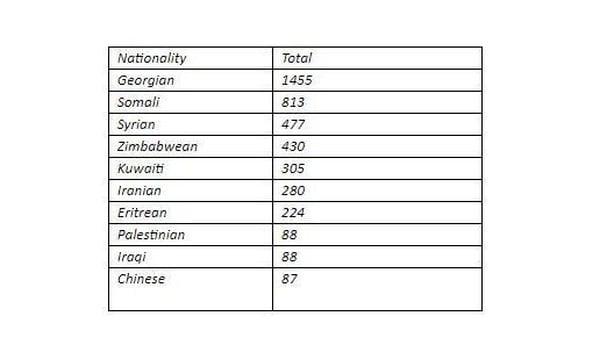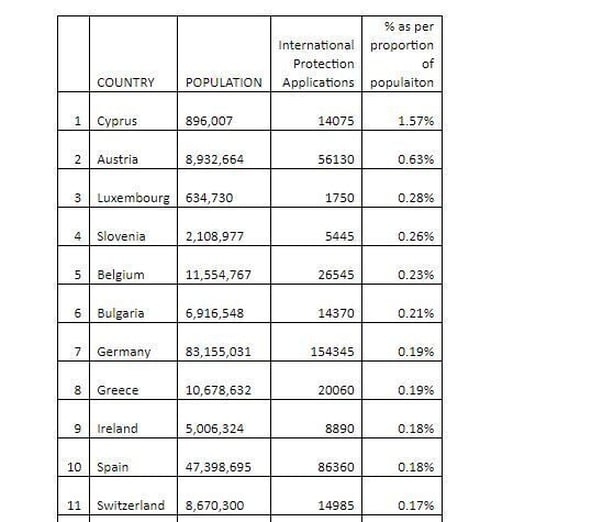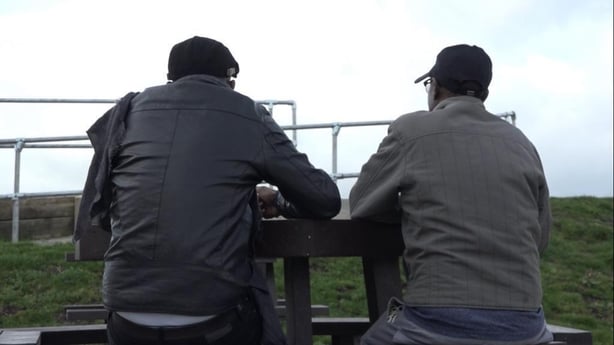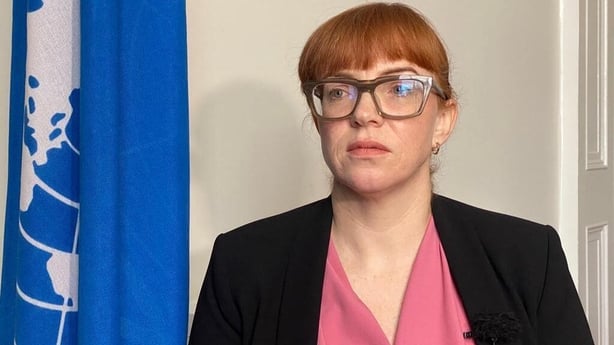The number of people seeking international protection in Ireland has increased by 186%, but the exact number without proper passports, identification or travel documentation is unknown, RTÉ News has learned.
Some 13,651 people applied for international protection last year compared to 4,781 applications in 2019, according to the Department of Justice.
"This is a 186% increase on the same period in 2019, the last year in which application numbers were not impacted by Covid-19," the Department of Justice said.
The exact number of how many international protection applicants have lost or destroyed their travel documents prior to seeking international protection in Ireland is unknown because data is only recorded at Dublin Airport.
We need your consent to load this rte-player contentWe use rte-player to manage extra content that can set cookies on your device and collect data about your activity. Please review their details and accept them to load the content.Manage Preferences
The Department of Justice said the International Protection Office, which processes applications, does not collect that data.
"The International Protection Office (IPO) of the department does not record figures for international protection applicants who are undocumented," it said.
"Whether someone does not have their documentation is recorded by the Border Management Unit at Dublin Airport and not the IPO.
"Figures are not available for other ports of entry. The Border Management Unit are not responsible for ports of entry other than Dublin Airport; these are the responsibility of the Garda National Immigration Bureau."

Gardaí said all applicants for international protection are referred to the IPO.
"Immigration officials in the Department of Justice are actively engaging with airport authorities and airlines at a senior level to underscore the importance of passengers possessing correct documentation and to provide support in helping them to reduce the number of passengers boarding flights without the correct documentation," said the Department of Justice.
It added the national number of international protection seekers without proper documentation is most likely in line with the data collected at Dublin Airport.
Figures for the past 12 months there show 61% of those who applied for asylum at the airport had no identity documents.
Between February 2022 and the end of January 2023, there were a minimum of 4,213 undocumented arrivals with 6,926 claiming asylum.
The department added: "Figures in relation to false documentation are not readily available."

'Painful death and torture'
A Somali man who used a false passport to flee to Ireland for international protection told RTÉ News he needed to leave his home or face death.
"I'm from Somalia and I used to work for the government and I have been targeted by the Al-Shabaab group," said the man, who fled after a coworker went missing.
"They consider every person that works for the government an infidel."
He told RTÉ's Morning Ireland he faced a "painful death and torture" and that his throat would have been cut with a knife if he remained in Somalia.
"They make people suffer," the man said, adding that he arrived to Ireland on a false passport.
"I just passed through the airport with a passport of someone that looks like me. I went to the IPO (International Protection Office) the next day."
The man said Ireland offered hope when he arrived, but recent anti-immigration protests make him feel threatened.

"I feel unwelcome. We are just vulnerable people that need to be protected," said the man.
Another Somali man said he entered Ireland through Dublin Port and was not stopped for identification.
He sought international protection from the IPO the following day.
Calls to speed-up
With increased migration flows in Europe and increased travel after Covid-19 restrictions, there are calls for the Government to speed up the international protection process.
"We need to have compassion, but we also need to have common sense in relation to this," said Aontú leader Peadar Tóibín.
"There's no doubt that there are refugees who simply don't have the documentation but need help.
"But there's also no doubts that we need to be able to differentiate between those who need protection and those who are simply economic migrants who are using the system.
"The Government are taking an inordinate length of time to just process applications. The Government needs to invest resources into the system so that we can do this job properly."

UNHCR
The United Nations Refugee Agency (UNHCR) said there are many reasons people do not have proper documentation.
"Once a person requests asylum in the territory of Ireland they should have access to the asylum process," said Maria Hennessy, UNHCR Ireland's assistant protection officer.
"If they express a fear of being sent back to their country of origin, there is a requirement to enable them to access the asylum process.
"Article 31 of the Refugee Convention prohibits states from penalising refugees for entering a country illegally to seek asylum.
"Often refugees have to resort to irregular means to enter a country, and the majority of persons who are seeking asylum in Ireland are from countries where visas are required.
"Often they've no other avenue or solution except to resort to using smugglers or fraudulent documentation."
The Department of Justice said in a statement it is working to speed up processing times for international protection applicants.
At the end of last year the average wait time was ten months, down from 18 months at the start of 2022.
The department said in a statement it has put in place efficiency reforms.
These include increasing staffing at the IPO, an additional €18m for the office and an accelerated process for applicants from "safe countries of origin" - countries where the Minister for Justice has declared there is generally no threat of persecution, torture, violence or threat of violence from armed conflict.
Read more: Staff working on asylum appeals down despite surge in applicants







